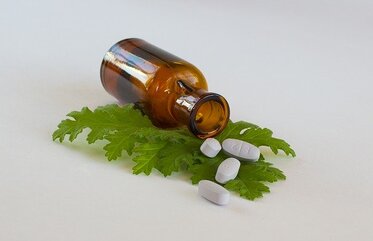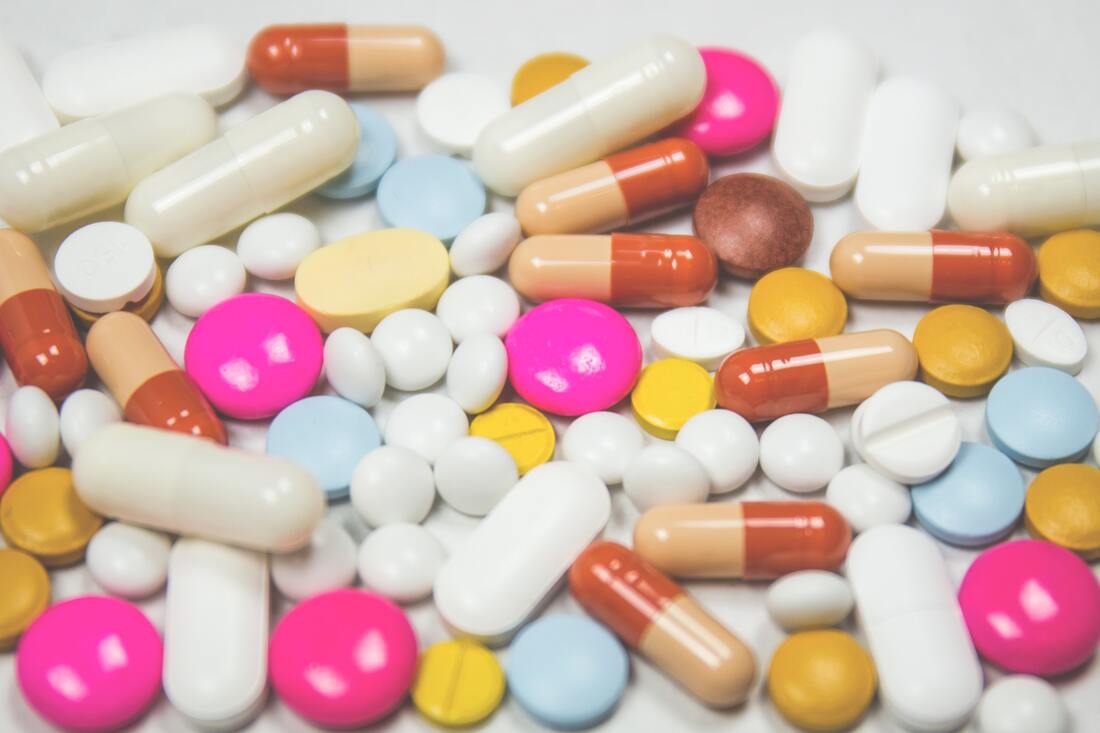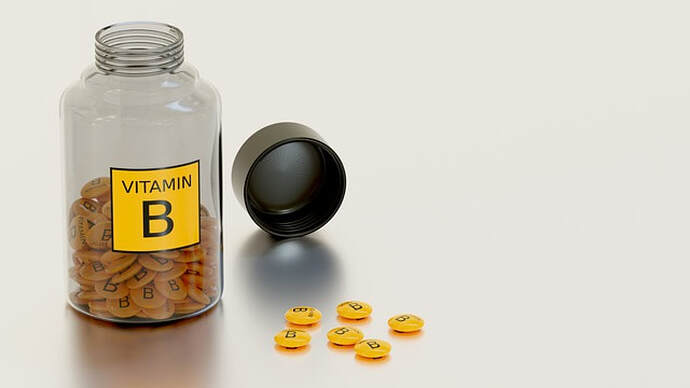DRUG-HERB AND DRUG-SUPPLEMENT INTERACTIONSROLE OF DIETARY SUPPLEMENTS IN MODERN LIFE Many people today take dietary supplements, herbal remedies, botanicals, and other “natural products” as part of their daily wellness regimen. Dietary supplements come in the form of pills, powders, or liquids and are widely available. Note that in the United States, herbs and herbal remedies are regulated as dietary supplements. DO SUPPLEMENTS PREVENT OR TREAT DISEASE? While there is a lot of evidence that dietary supplements help to prevent and treat nutrient deficiency, there is less evidence about the usefulness of dietary supplements in preventing or treating disease. In an evidence-based study of the links between nutritional supplements and mood and neurological disorders, antioxidants, omega-3 fatty acids, quercetin, folate, and zinc demonstrated benefit for depression. Elsewhere, research indicates that pomegranate may ward off infection, turmeric has been studied for Alzheimer disease, rheumatoid arthritis, and prostate and colon cancer, and ginger has proven effective for nausea and vomiting. DOES MY SUPPLEMENT OR HERB INTERACT WITH MY PRESCRIPTION DRUG? Although herbs and herbal remedies are regulated as dietary supplements and not as drugs, prescription drugs and herbs may interact in harmful ways. Some supplements decrease the effects of a drug. Others may increase a drug’s effects and produce unwanted side effects. Significantly, there is extensive evidence that St. John's wort interacts in dangerous, sometimes life-threatening ways, with a variety of prescription drugs including birth control pills, antidepressants, and some HIV drugs. There is still a lot we don’t know. TELL YOUR HEALTHCARE PROVIDER It’s important to tell your healthcare provider about all dietary supplements and drugs you take so they can help you avoid harmful interactions. WHERE DO I LEARN MORE? WEBSITES National Center for Complementary and Integrative Health https://nccih.nih.gov/health/herbsataglance.htm Fact sheets on specific herbs or botanicals MedlinePlus of the U.S. National Library of Medicine https://medlineplus.gov/druginformation.html Drugs, Herbs and Supplements page BOOKS Tarascon Pocket Pharmacopoeia 2020 Richard J. Hamilton, M.D., Editor-in-Chief. Ten pages detailing possible drug interactions with commonly used herbs. Herbal Contraindications and Drug Interactions 2010 Frances Brinker, N.D. Comprehensive guide to drug-herb interactions with additional extensive appendices addressing common conditions, medications and nutritional supplements, and influences on phase I, II, and III metabolism. Disclaimer: Information in this blog is presented for educational purposes only. Not intended to diagnose, treat, cure, or prevent any disease. The use of herbal preparations is not recommended without seeking the advice of a healthcare provider. Substances in herbal preparations may interact with prescription drugs to eliminate therapeutic efficacy or induce toxicity.
0 Comments
Dietary supplements found to contain hidden drug ingredientsALPHA-MALE
FDA laboratory analysis confirmed that Alpha-Male contains sildenafil (the active ingredient in Viagra) and tadalafil (the active ingredient in Cialis). These undeclared ingredients may interact with nitrates found in some prescription drugs, such as nitroglycerin, and may lower blood pressure to dangerous levels. People with diabetes, high blood pressure, high cholesterol, and heart disease often take nitrates. https://www.fda.gov/drugs/medication-health-fraud/public-notification-alpha-male-contains-hidden-drug-ingredients?utm_campaign=CDER%20New%2002%2F07%2F2020&utm_medium=email&utm_source=Eloqua&elqTrackId=e21990e7efc94becbc0a1eb56d5192b0&elq=1b44daefbf5e4619974f8708cc786cbb&elqaid=11159&elqat=1&elqCampaignId=9374 XXX PLATINUM WOODIE FDA analysis has confirmed that XXX Platinum WOODIE, sold for sexual enhancement on various websites and possibly in retail stores, also contains sildenafil and tadalafil. https://www.fda.gov/drugs/medication-health-fraud/public-notification-xxx-platinum-woodie-contains-hidden-drug-ingredients?utm_campaign=CDER%20New%2002%2F07%2F2020&utm_medium=email&utm_source=Eloqua&elqTrackId=0e304f83cc0e4d44aa958e4111542af5&elq=1b44daefbf5e4619974f8708cc786cbb&elqaid=11159&elqat=1&elqCampaignId=9374 ORGAZEN GOLD 5800 The FDA has confirmed that OrgaZEN Gold 5800 contains the hidden drug ingredient sildenafil. https://www.fda.gov/drugs/medication-health-fraud/public-notification-orgazen-gold-5800-contains-hidden-drug-ingredient?utm_campaign=CDER%20New%2002%2F07%2F2020&utm_medium=email&utm_source=Eloqua&elqTrackId=d88bafeb7d3d4c6b8b13c92a1edb7840&elq=1b44daefbf5e4619974f8708cc786cbb&elqaid=11159&elqat=1&elqCampaignId=9374 RMFLEX The Food and Drug Administration is advising consumers not to purchase or use RMFLEX, a product promoted and sold for joint pain and arthritis. FDA analysis has confirmed that RMFLEX contains diclofenac, a non-steroidal anti-inflammatory drug (NSAID). NSAIDs may increase the risk of cardiovascular events (heart attack, stroke) and serious gastrointestinal damage (bleeding, ulceration, and fatal perforation of the stomach and intestines). The hidden drug ingredient diclofenac may interact with other medications and significantly increase the risk of adverse events. https://www.fda.gov/drugs/medication-health-fraud/public-notification-rmflex-contains-hidden-drug-ingredient?utm_campaign=CDER%20New%2002%2F07%2F2020&utm_medium=email&utm_source=Eloqua&elqTrackId=98124bb963e1413ea7e9c8de8da63293&elq=1b44daefbf5e4619974f8708cc786cbb&elqaid=11159&elqat=1&elqCampaignId=9374 On November 5, 2019, the FDA updated its 2017 safety communication to remind patients, healthcare professionals, and laboratory technicians that levels of biotin or B-7, a B-complex vitamin and a common component of dietary supplements, higher than the recommended daily allowance may interfere with lab test results. Many dietary supplements promoted for hair, skin, and nails contain biotin levels up to 650 times the recommended daily intake of biotin. Physicians may also recommend high levels of biotin for patients with certain conditions such as multiple sclerosis. Biotin levels higher than the recommended daily allowance may cause interference with lab tests. In its most recent update, the FDA reminds the public, healthcare providers, lab personnel, and lab test developers that biotin, often found in dietary supplements, can cause clinically significant incorrect lab test results. The FDA has seen an increase in the number of reported adverse events, including one death, related to biotin interference with lab tests. Incorrect test results may lead to inappropriate patient management or misdiagnosis. Biotin in patient samples can cause falsely high or falsely low results, which may lead to inappropriate patient management or misdiagnosis. For example, a falsely low result for troponin, a clinically important biomarker to aid in the diagnosis of heart attacks, may lead to a missed diagnosis and potentially serious clinical implications. Consumers are advised to tell their doctor if they are taking biotin. Healthcare providers should talk to their patients about any biotin supplements they may be taking. Know that biotin is found in multivitamins – including prenatal multivitamins, biotin supplements, and dietary supplements for hair, skin, and nail growth – at levels that may interfere with lab tests. Lab personnel using assays with biotin technology must educate themselves and others about the potential for biotin interference. The recommended daily allowance of biotin is 0.03 mg and biotin is present in small amounts in many foods including whole grains, eggs, walnuts, avocados, egg yolk, liver, and yeast. Forms for healthcare professionals and patients to report safety information:
https://www.fda.gov/safety/medwatch-fda-safety-information-and-adverse-event-reporting-program/medical-product-safety-information FDA Safety Communication: https://www.fda.gov/medical-devices/safety-communications/update-fda-warns-biotin-may-interfere-lab-tests-fda-safety-communication  September 2019 The U.S. Food and Drug Administration is advising consumers not to purchase or use LOBO, Love in S, Sheaya Lender, and Mero Macho sold and advertised as dietary supplements. FDA has identified an emerging trend in which over-the-counter products, frequently represented as dietary supplements, contain hidden active ingredients that could be harmful. Consumers may unknowingly take products laced with varying quantities of approved prescription drug ingredients, controlled substances, and untested and unstudied pharmaceutically active ingredients. These deceptive products can harm you! LOBO This product promoted for sexual enhancement was identified in an examination of international mail shipments. The red LOBO text and fierce wolf image resemble the mascot of the University of New Mexico, and package copy in Spanish states Maximiza tu potencia sexual – Doble dosis de poder (Maximize your sexual potency – double dose of power). The Food and Drug Administration is advising consumers not to purchase or use LOBO, which contains sildenafil, the active ingredient in the prescription drug Viagra. This undeclared ingredient may interact with nitrates found in some prescription drugs, such as nitroglycerin, and may lower blood pressure to dangerous levels. Mero Macho Mero Macho is sold on the websites fitoterapiausa.com and meromachodrink.com (both sites are currently under construction). FDA laboratory analysis confirmed that Mero Macho contains tadalafil, the active ingredient in the prescription drug Cialis, used to treat erectile dysfunction. Adverse reactions noted in the Cialis prescribing information include headache, indigestion, back pain, myalgia, nasal congestion, flushing, and limb pain. Contraindications are organic nitrates (tadalafil potentiates the hypotensive effect of nitrates), patients with known serious hypersensitivity to tadalafil, and concomitant guanylate cyclase stimulators. People with diabetes, high blood pressure, high cholesterol, or heart disease often take nitrates. Sheaya Lender FDA is advising consumers not to purchase or use Sheaya Lender, a product promoted for weight loss. This product was identified during an examination of international mail shipments. FDA laboratory analysis confirmed that Sheaya Lender contains sibutramine and fluoxetine. Sibutramine is a controlled substance that was removed from the market in October 2010 for safety reasons. This product poses a threat to consumers because sibutramine is known to substantially increase blood pressure and/or heart rate in some people and may present a significant risk for people with a history of coronary artery disease, congestive heart failure, arrhythmia, or stroke. This product may also interact, in life-threatening ways, with other medications a consumer may be taking. Fluoxetine is an FDA-approved drug in a class of drugs called selective serotonin reuptake inhibitors (SSRIs) used for treating depression, bulimia, obsessive-compulsive disorder, panic disorder, and premenstrual dysphoric disorder. The use of SSRIs has been associated with serious side effects including suicidal thinking, abnormal bleeding, and seizures. Ventricular arrhythmia or sudden death can occur when patients are also taking other medications for common conditions (aspirin, ibuprofen, or other drugs for depression, anxiety, bipolar illness, blood clots, chemotherapy, heart conditions, and psychosis). Love in S FDA is advising consumers not to purchase or use Love in S, a product promoted and sold for weight loss. The package has the torso of a fit woman, images of fruits and other plants, and the words “love in S lose inches Natrually.” FDA laboratory analysis confirmed that Love in S contains sibutramine and N-desmethylsibutramine. N-desmethylsibutramine is structurally similar to sibutramine (as described above, sibutramine is a controlled substance that has been removed from the market). “These products are masquerading as dietary supplements — they may look like dietary supplements but they are not legal dietary supplements,” says Michael Levy, director of FDA’s Division of New Drugs and Labeling Compliance. “Some of these products contain hidden prescription ingredients at levels much higher than those found in an approved drug product and are dangerous.” FDA has received numerous reports of harm associated with the use of these products, including stroke, liver injury, kidney failure, heart palpitations, and death. Dietary Supplements and the FDA Dietary supplements, in general, are not FDA-approved. Under the Dietary Supplement Health and Education Act of 1994, dietary supplement firms do not need FDA approval prior to marketing their products. It is the company’s responsibility to make sure its products are safe and that any claims are true. Just because you see a supplement product on a store shelf does NOT mean it is safe or effective. When safety issues are suspected, FDA must investigate and, when warranted, take steps to have the product removed from the market. However, it is much easier for a firm to get a product on the market than it is for FDA to take a product off the market. FDA has worked with the supplement industry to recall numerous products with potentially harmful ingredients including products marketed for weight loss, products marketed for sexual enhancement, and products marketed for body building. The agency has issued warning letters, seized products, and conducted criminal prosecutions. In December 2010, a woman pleaded guilty to an 18-count indictment charging her with the illegal importation and distribution of more than four million diet pills that contained a controlled substance, unapproved drugs, and a possible cancer-causing agent. These hidden ingredients pose a risk to consumer health. Remember, FDA cannot test all products marketed as dietary supplements to identify those containing potentially harmful hidden ingredients. Consumers must be aware of these dangerous products and learn how to identify and avoid them using the warning signs described below. Advice for Consumers What can you do? Be an informed consumer. Know the source of the dietary supplements you buy. Read the label information. Subscribe to FDA notifications informing the public of products marketed as dietary supplements or conventional foods with hidden drug ingredients and chemicals. These products are typically promoted for sexual enhancement, weight loss, and body building and are often represented as being “all natural.” Consumers should exercise caution before purchasing any product in the above categories. “We need consumers to be aware of these dangerous products and to learn how to identify and avoid them,” says Levy. Consumers should look for potential warning signs of tainted products marketed as dietary supplements, such as products claiming to be alternatives to FDA-approved drugs or to have effects similar to prescription drugs, products claiming to be a legal alternative to anabolic steroids, products marketed primarily in a foreign language, products with typographical errors in the label information, or products marketed through mass emails. Beware of sexual enhancement products promising rapid effects, such as working in minutes to hours, or long-lasting effects, such as working for 24 to 72 hours. Generally, if you are using or considering using any product marketed as a dietary supplement, FDA suggests that you check with your healthcare professional or a registered dietician about any nutrients you may need in addition to your regular diet. Ask your healthcare professional for help distinguishing between reliable and questionable information. Ask yourself if it sounds too good to be true. Be cautious if the claims for the product seem exaggerated or unrealistic. Watch out for extreme claims — “quick and effective,” “cure-all,” “can treat or cure diseases,” or “totally safe.” Be skeptical about anecdotal information from personal “testimonials” about incredible benefits or results obtained from using a product. Useful Links FDA’s Medication Health Fraud webpage: https://www.fda.gov/drugs/buying-using-medicine-safely/medication-health-fraud Forms for healthcare professionals and patients to report adverse events or side effects: https://www.accessdata.fda.gov/scripts/medwatch/ Responsibilities of retailers and distributors regarding tainted dietary supplements and foods: https://www.fda.gov/media/79494/download FDA Announcement: Mero Macho All information current as of September 6, 2019. Information in this blog is presented for educational purposes only. Not intended to diagnose, treat, cure, or prevent any disease. The use of herbal preparations is not recommended without seeking the advice of a healthcare provider. Substances in herbal preparations may interact with prescription drugs to eliminate therapeutic efficacy or induce toxicity.
|
�
AuthorKerilyn Sappington is the founder of Integrative Translations, which specializes in the Chinese to English translation of topics in conventional and complementary medicine. Archives
August 2022
Tags
All
|





